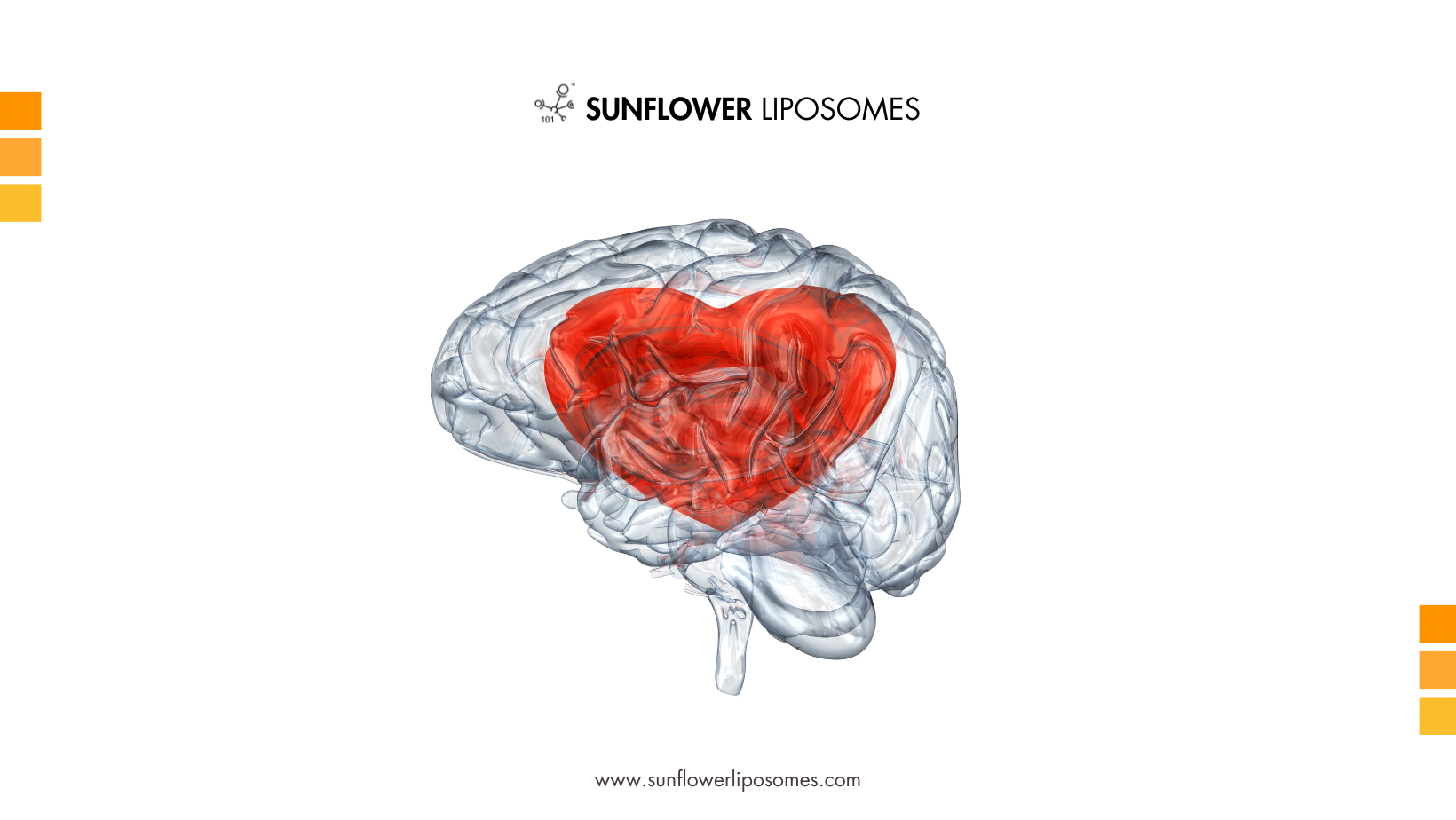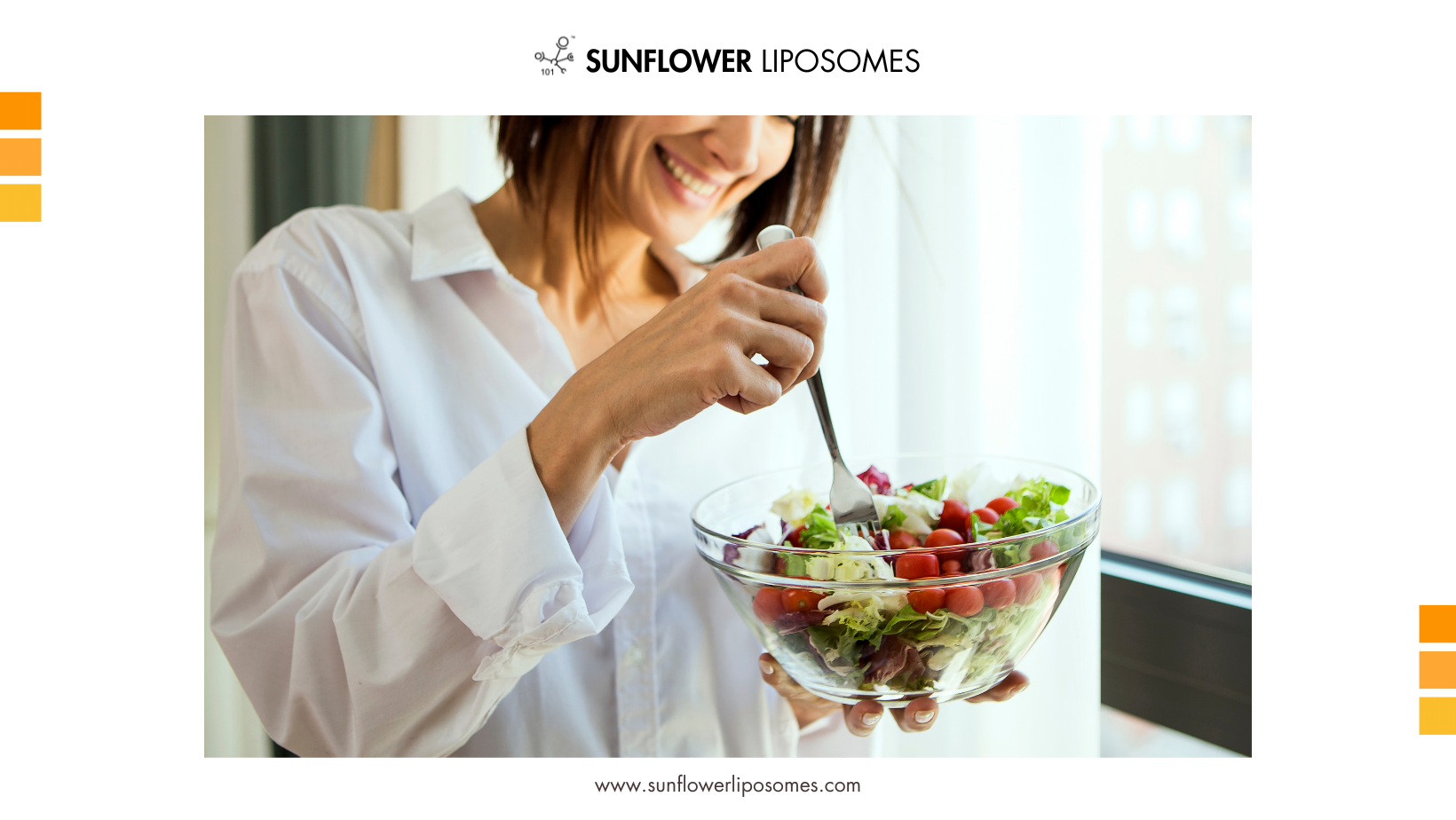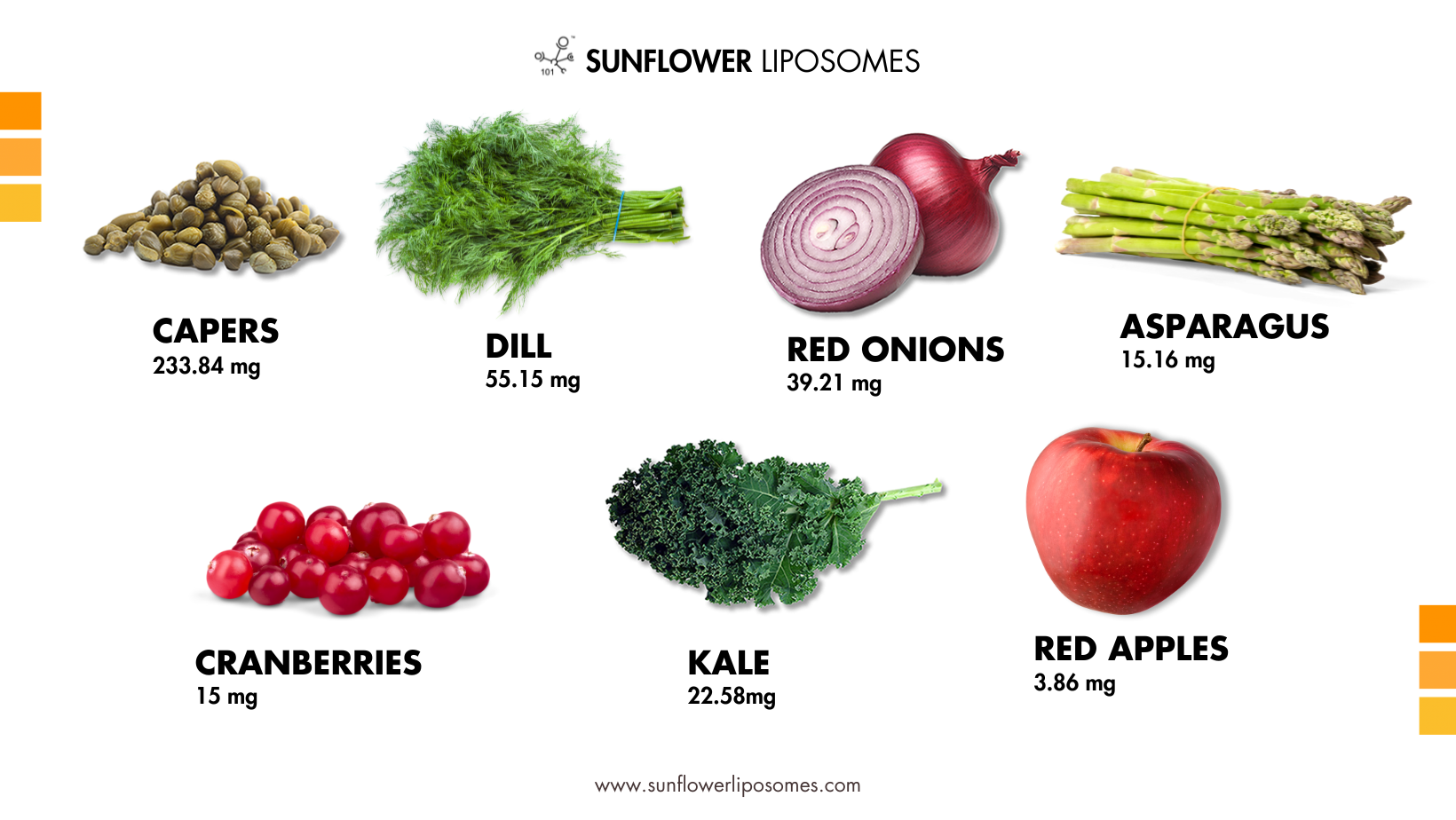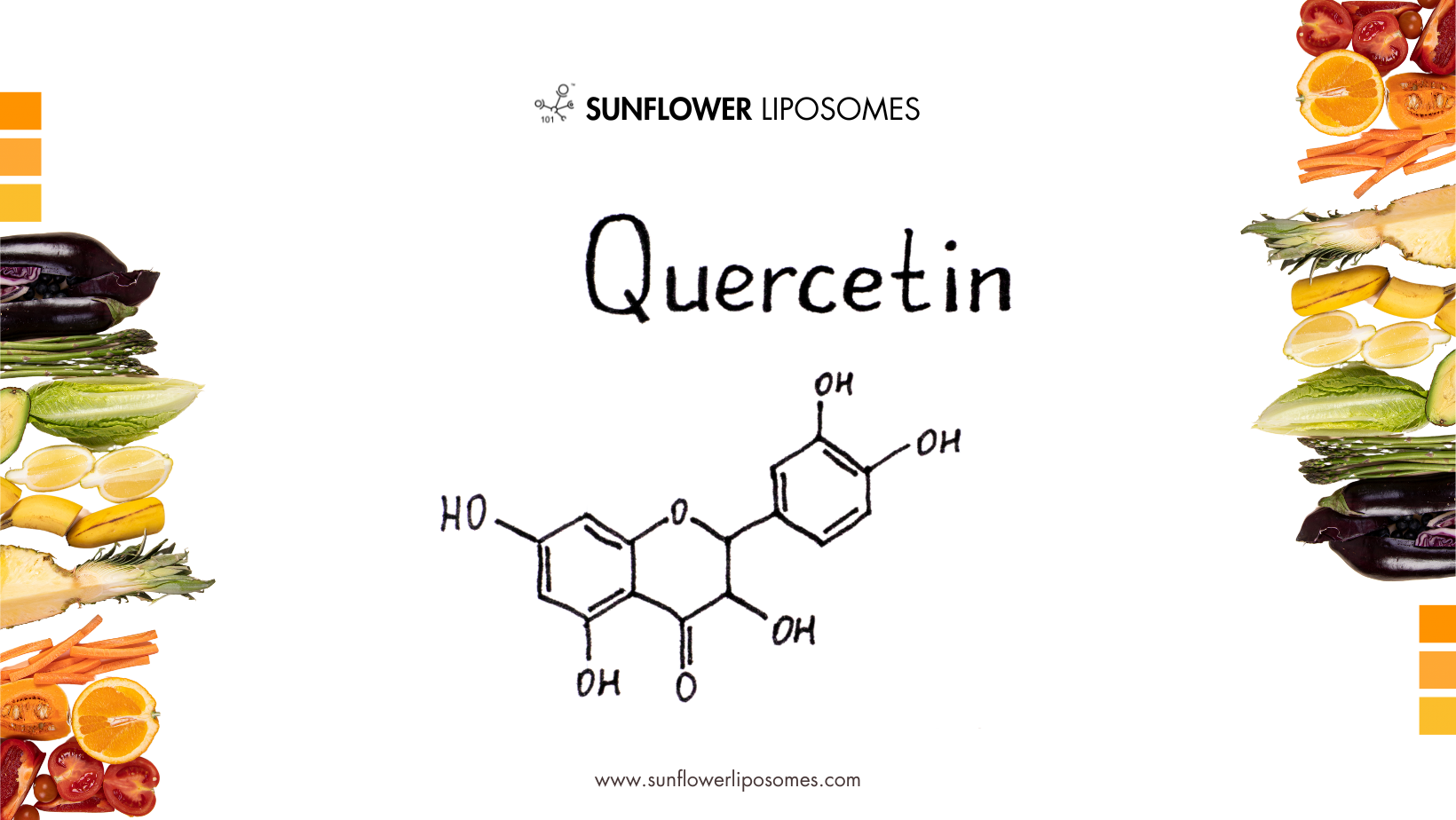1st Mar 2024
Discovering the secrets of quercetin for optimal health
This powerful flavonoid is making waves for it's remarkable health benefits and potential to enhance your wellbeing.
What exactly is quercetin, you ask? It's a natural compound found in various fruits, vegetables and plants. Known for its exceptional antioxidant and anti-inflammatory properties, quercetin offers lots of health benefits from supporting heart to boosting immunity and beyond.

Brain Health
Shifting attention to the domain of cognitive health, quercetin's efficacy is equally noteworthy. It combats neuroinflammation and oxidative stress, key factors in the treatment and prevention of brain disorders such as Alzheimer's and Parkinson's disease. Quercetin therefore acts not only as a guardian of our cognitive vitality, but also supports the preservation and improvement of our mental acuity.

Understanding the Bioavailability of Quercetin
When considering the health benefits of plant compounds like quercetin, it's essential to understand their bioavailability. Bioavailability refers to the portion of a substance that enters circulation and can exert its effects on the body after consumption. Despite being present in various fruits and vegetables, quercetin's bioavailability varies, and simply consuming it doesn't guarantee absorption.
The bioavailability of quercetin is influenced by its source, with foods rich in quercetin generally exhibiting better absorption rates. However, in general, quercetin is not highly bioavailable, meaning that our bodies may not absorb and utilise a significant portion of the quercetin we consume.
Once ingested, quercetin is absorbed through the small intestine and transported to various organs such as the colon, liver, and kidneys. In these organs, quercetin undergoes metabolism, or breakdown, to become available for use by the body.
Now that we understand the absorption process of quercetin, let's explore some of the foods that are naturally rich in this beneficial compound.

Top 10 Quercetin-Rich Foods to Add to Your Diet
Capers:
- These small flower buds, often pickled, are native to Mediterranean countries and boast the highest levels of naturally occurring quercetin among all foods. With 233.84 milligrams of quercetin per 100 grams, capers are a potent source of this beneficial compound.
Herbs:
- Dill and cilantro are standout sources of quercetin, with 55.15 milligrams and 52.9 milligrams per 100 grams respectively. While consuming 100 grams of herbs may seem excessive, incorporating them into recipes is a flavorful way to boost your quercetin intake.
Red Onions:
- Red onions, known for their distinct colour and flavour, are rich in quercetin (39.21 milligrams per 100 grams). Studies have shown that red onions contain the highest levels of quercetin compared to other onion varieties, particularly in the outer peel.
Asparagus:
- Abundant in spring, asparagus is a versatile vegetable rich in quercetin (15.16 milligrams per 100 grams). Whether enjoyed fresh or cooked, asparagus is a valuable addition to your diet to increase quercetin intake.
Cranberries (and Other Berries):
- Bright red cranberries are not only visually appealing but also a great source of quercetin, offering 15 milligrams per 100 grams. Additionally, blueberries, lingonberries, and elderberries are rich in quercetin.
Kale:
- Swap out lettuce for nutrient-rich kale in your salads to boost quercetin intake (22.58 milligrams per 100 grams). Kale offers considerable amounts of quercetin along with other essential nutrients like vitamin A and vitamin K.
Apples:
- Red and yellow apples, such as red delicious (3.86 milligrams per 100 grams), gala, and golden delicious, are rich sources of quercetin, predominantly found in the peel. Ensure to consume the skin to maximise quercetin intake.
To Supplement or Not?
Getting the full benefits of quercetin requires overcoming the challenge of bioavailability. The efficiency with which our bodies absorb this nutrient depends on various factors, including age, gender, and dietary habits.
For those who want to maximise their intake, liposomal supplements such as Sunflower Liposomes Quercetin with Vitamin C offer an effective solution. These supplements enhance the absorption, bioavailability, and efficacy of quercetin, ensuring that you get the most out of this powerful flavonoid. Liposomal delivery systems enhance the bioavailability of quercetin by improving its absorption through the blood and epithelial systems, targeting it to the site of action for maximum effectiveness.
Incorporating quercetin into our diet encourages us to enjoy a wide range of quercetin-rich foods, enriching our lives with both taste and health. A commitment to a nutrient-rich diet, complemented by the strategic use of liposomal supplements, is a key step towards achieving and maintaining peak vitality and wellbeing.

Quercetin: The Flavonoid Gateway to Vibrant Health and Wellbeing
As we delve deeper into understanding the extensive benefits of quercetin, it becomes clear that this flavonoid is the key to unlocking a healthier, more vibrant existence. Through the simple act of enjoying an apple, in a cup of green tea, or including in the diet as a liposomal supplement, quercetin accompanies us on our journey to wellbeing.

